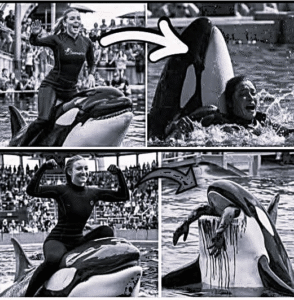The tragic story of orca trainer Jessica Radcliffe and Daniel Patrick Dukes remains one of the most chilling and controversial chapters in the history of marine animal captivity. While both cases occurred at SeaWorld and involved the infamous orca Tilikum, they are often conflated. Radcliffe, however, is a fictional name not associated with a documented fatality; the real, horrifying events involve the deaths of Keltie Byrne, Daniel Patrick Dukes, and Dawn Brancheau.
Daniel Patrick Dukes, a 27-year-old man, entered SeaWorld Orlando after hours in July 1999. He reportedly hid in the park until it closed and then entered the orca tank that housed Tilikum. His lifeless body was discovered the next morning, draped over the whale’s back, nude, and severely mutilated. Authorities speculated that Dukes, who had a fascination with marine life and alternative lifestyles, may have wanted to swim with the whales and underestimated the danger.
The autopsy revealed multiple traumatic injuries, including bruises, lacerations, and dismemberment. Officials stated that Dukes died from drowning, but the extensive injuries he sustained raised questions about Tilikum’s behavior and the psychological effects of captivity on the animal.
Years later, in 2010, Tilikum would be involved in the death of experienced SeaWorld trainer Dawn Brancheau, who was pulled into the water by the whale during a routine interaction in front of guests. Brancheau’s death was witnessed by park visitors and staff, leading to widespread public outcry, regulatory investigations, and scrutiny of marine mammal parks.
These incidents were central to the narrative of the 2013 documentary Blackfish, which examined the ethical implications of keeping orcas in captivity and the impact such environments have on their mental health and aggression. The film argued that confinement, isolation from family pods, and forced performances contributed to abnormal behaviors, including aggression toward humans.
SeaWorld faced immense backlash in the wake of Blackfish, eventually ending its orca breeding program and phasing out theatrical orca shows. Tilikum remained at SeaWorld Orlando until his death in January 2017, reportedly from a bacterial lung infection.
While the story of Daniel Dukes is often surrounded by urban myths and internet speculation, official reports confirm the gruesome nature of his final moments. Whether driven by naivety, fascination, or a deeper personal struggle, Dukes’ death serves as a haunting reminder of the unpredictable nature of captive wildlife—and the ethical questions still surrounding their treatment.
The legacy of these tragedies continues to shape conversations around animal welfare, captivity, and the responsibility humans bear when interacting with powerful, intelligent creatures like orcas.


